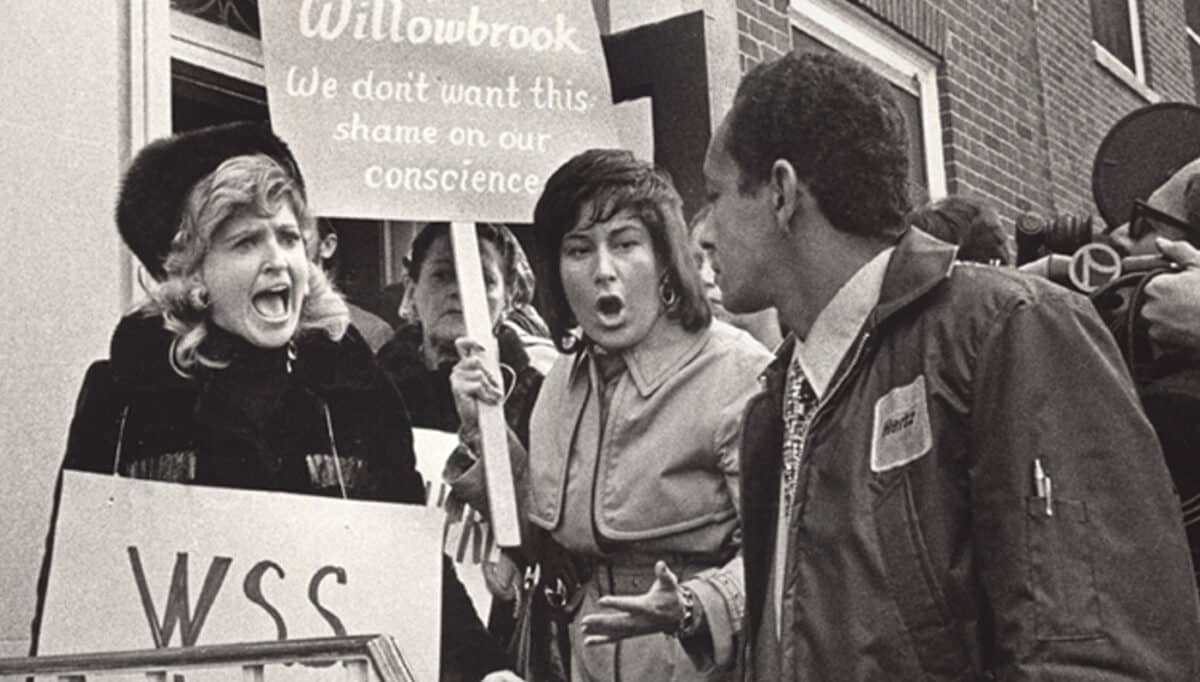Feb. 28, 2024 By Joshua Schneps
One of the first community newspapers I acquired came with three vaults in the office. I was given the combination for each, but no longer had use for them.
The vaults had been used to store the revenue collected from sales of newspapers at newsstands and subscriptions, but that was no longer necessary given how much the print component of the industry had declined by that time. The industry had moved online.
The accessibility to news online, however, has changed, and continues to change, along with the entire business model, with consumers wanting their news for free. After all, why go out and pay for something when you can get it for free?
But while consumers benefited from access to more information at their fingertips than ever before, the entire news industry has suffered mightily. The local news industry is in a death spiral from the loss of advertising revenue and major tech companies de-emphasizing local news — putting jobs, journalism, and even the First Amendment freedom of the press itself in serious jeopardy.
At this point, only one thing can stop this death spiral: assistance from the government.
The path of change
My mother founded the newspaper based on advocacy on behalf of my sister Lara who was born mentally handicapped at birth. She picketed for the avoidance of budget cuts to institutions caring for those with disabilities. Her cries fell on deaf ears until a young journalist, Geraldo Rivera, covered the story repeatedly which created change on behalf of all those with disabilities across the state and eventually country.

Before founding the Queens Courier, Victoria Schneps picketed over deplorable conditions at Willowbrook State School, where her daughter Lara had been under care. Her work with journalist Geraldo Rivera led to dramatic reforms of group home care in New York, and reinforced her belief in local journalism’s ability to change public policy for the better.Schneps Media
That cemented the belief in my mother that news is vital to holding people accountable, informing the community and generating positive change.
The business model of the newspapers my mother founded in our home, The Queens Courier, was based on selling print advertising. Joining my mother’s newspaper company in 2001, I knew the emergence of digital media was critical to our future.
We slowly evolved the business to train and educate our editorial and sales teams to embrace a digital first philosophy. We also developed an events division to diversify and grow our business.
Over the past 15 years, optimism spread throughout the industry as social media and Google provided platforms for websites of all sizes to reach significant audiences without needing to have legacy brands.
But as the digital revolution took hold, print classified advertising went to platforms like Craigslist and print ad categories such as restaurants went to Seamless and GrubHub, auto dealers went to Cars.com and other industry specific verticals flourished.
Businesses such as mine were quick to adapt by driving more readers and advertisers to their own websites by investing in digital editors, reporters and social media managers to feed the never ending online news cycle. Still, digital advertising was slow to follow — yet promise persisted as page views grew.
Impact of Big Tech
Then the other shoe dropped.
Companies such as Meta and Google became the gateways to information in terms of what people saw in their feeds and searches — including, most of all, advertising. Today, according to recent reports, Meta and Google alone represent a whopping 57% of all online advertising in the United States. That is a breathtaking statistic considering how many other companies vie for the remaining 43% piece of the pie.
The platforms had enticed media companies to post and make their content accessible on their platforms in certain cases paying news organizations to create content for their platforms.
Many digital media companies bet the house on it by simply creating content for the platforms or what they perceived the platforms were rewarding in terms of traffic.
It turned out to be a Trojan horse.
Big tech companies changed algorithms to de-emphasize news without explanation or warning, causing referral traffic to diminish. That forced companies to quickly pivot business models or literally shut down. Followers of pages were no longer seeing content unless publishers paid for it, and search results were given short form answers to keep people from leaving the sites.
Most recently, the industry has begun to fight back and the dominance of the platforms has caught the attention of federal and local legislators. Other countries have set precedents by forcing Google and Meta to pay publishers for the use of their content.
Now the tech giants are cutting news organizations off, leading to a bloodbath. Facebook recently closed Facebook News and you find far fewer news stories in your feed reducing traffic to news sites. Google has made recent changes to its algorithms that have led to substantial declines in traffic to our websites.
At a recent gathering of media executives in Washington DC, I learned that many saw 30% traffic declines to their websites over the past year.
This crash in digital traffic is causing a major industry decline. News organizations, both print and digital, have slashed their editorial staff. The drop off of newsprint has continued and the future growth engine of the business, digital, is in free fall.

Joshua Schneps, CEO and publisher of Schneps Media, the largest media organization in New York City
If local news dies, so does democracy
What has become clear is that there is no viable business model for a media company without a great deal of focused and niche content plus scale. Each company must be fully diversified and they need to have quality content with the intention of having a direct relationship with their readers.
Still, local news isn’t just another industry that makes things; it plays a critical role in our democracy. It holds people in power accountable and shares critical information in a reliable manner from community board meetings to proposed legislation to crime to education.
Misinformation and polarization largely stems from ignorance and a lack of local news sources leaves our communities ripe for the fibers of our democracy to be pulled apart.
Now, the government must act to preserve both local news, and democracy.
Before the New York State legislature today is an opportunity to provide a bridge to the news organizations of New York that are in desperate need of retaining journalists and hiring journalists to produce more content. The bill calls for a tax credit for each full time journalist employed. It is a common sense bill that would protect and grow jobs in an industry that is key to our democracy.
This is an opportunity for our state leadership to save what is vital for our state and our country. It would provide a model for other states across the country. Even if this fails, it would have created job retention and growth in the industry.
But most importantly, we will tell the stories that need to be told and give faith to the citizens of New York that they will have reliable sources of news and information. If you also wish to protect local news and make sure your story is told, call and write your state Senators and Assembly Members as well as Gov. Kathy Hochul.
The current trends of journalist layoffs can’t continue if we expect to have an informed society. Benjamin Franklin made sure newspapers were given preferential postal rates because he recognized the need to make sure news was readily available to citizens.
Now it’s time again for the government to step in to make sure news is protected in a common sense manner.
Joshua Schneps is the CEO and publisher of Schneps Media, New York City’s largest media company, with more than 80 newspapers, magazines and local news websites.